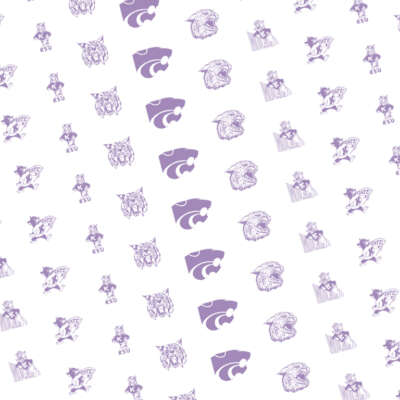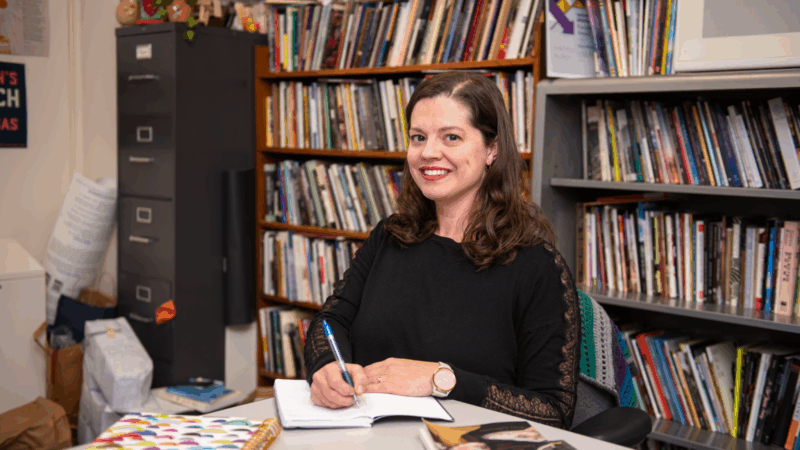K-State students translate WWII-era letters from Charles de Gaulle.
Last fall, one group of Kansas State University students experienced WWII-era intrigue via K-State Libraries.
Thanks to a new course, “Translating the Freedom Papers: Charles de Gaulle and WWII Correspondence,” they created original English translations of several of de Gaulle’s letters that were previously only available in French.
Professors Melinda Cro and Kathleen Antonioli used the French Freedom Papers from the Richard L.D. & Marjorie J. Morse Department of Special Collections as the course’s central texts to teach the students—both undergraduates and graduates—the basics of the translation process.
Now visitors can view their work in a mini-exhibit, “Très Secret: Translating the Freedom Papers” by Hale Library’s main entrance.
According to senior Adam Hewitt-Smith, at first, the letter he was to translate seemed lifeless. Eventually, though, the research he did about its contents gave him a nuanced understanding of evolving relationships between the French Resistance and the British.
“I started to see not just another inert, formal piece of wartime correspondence,” Smith-Hewitt said. “Instead I saw a document representative of the care de Gaulle took in shaping perceptions of himself and the Free French during the war, and the rhetorical strategies he used to do so.”
Finally, by the end of the semester, he was able to translate the letter, giving it a new life in English.
The “Très Secret” exhibit includes not only the students’ projects but also the texts in the original French. In addition, it introduces viewers to Phillippe Thyraud de Vosjoli. De Vosjoli, once head of French intelligence for the western hemisphere, worked for de Gaulle at posts around the globe during the Cold War years. He was instructed to destroy the letters, but years later, he gave them as a gift of friendship to his attorney, Alan Greer. Greer, whose wife, Patricia J. Seitz, is a senior U.S. district court judge and K-State alumna, donated them to Kansas State University.
Several student translators said they would like to let Greer know how rewarding it was to work with such meaningful historic texts.
“Working with these documents was one of my favorite projects, either as an undergraduate or graduate student, because it required research into so many different topics to truly understand the letters or feel confident in our translations,” recent alumnus Ariana Guerin said.
It was a gratifying experience for the professors, as well.
“I was so impressed by the students’ ability to combine historical research, textual analysis and French-to-English translation in these projects,” Antonioli said. “Their work illuminated the rich history of the documents in the collection, as well as de Gaulle’s very particular (and sometimes amusing) tone and ways of addressing his British counterparts.”
“This was one of the most rewarding experiences for me as a teacher,” Cro added. “The students produced wonderful, professional and complex work … [and also] developed individually in ways that far exceeded my expectations. I am so grateful to the donors and to Hale Library for the opportunity to work with this fascinating archive.”
The exhibit will be on view through summer 2018. To learn more about the French Freedom Papers, contact the Morse Department of Special Collections at libsc@ksu.edu.






